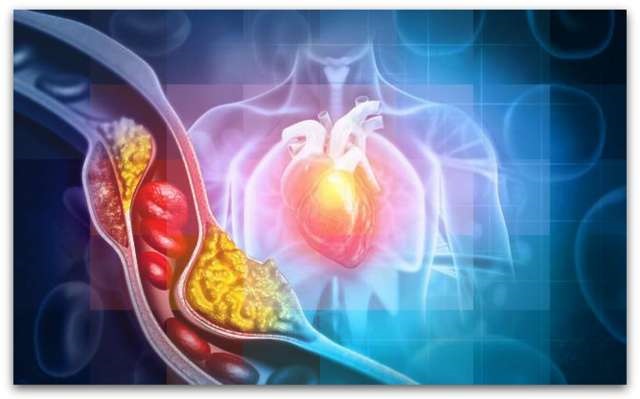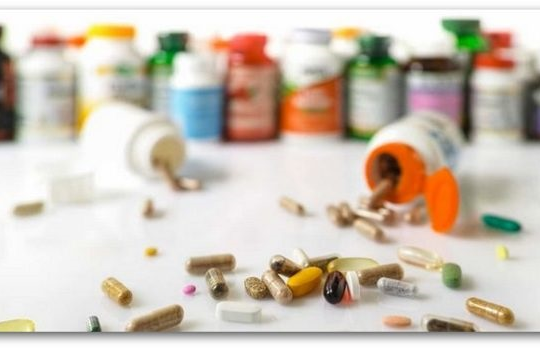

Cholesterol is a type of lipid, a waxy, fat-like substance that is naturally produced by the liver and has many important functions in the body.
The word “cholesterol” usually has a negative health connotation. It is a type of lipid, a waxy, fat-like substance that the liver produces naturally and has many important functions in the body: it stabilizes cell membranes, supports the production of certain hormones, and is necessary for normal brain development.
Not all cholesterol is the same. Two types of proteins transport it in and out of cells.
Low-density lipoprotein (LDL, also known as “bad” cholesterol) contributes to fatty deposits in the arteries, which can result in heart disease and potential stroke.
High-density lipoprotein (HDL, the so-called “good” cholesterol) returns some of the cholesterol from the cells back to the liver, which breaks it down and removes it from the body.
A high blood cholesterol level should always be discussed with a doctor, says Dr. Ulrich Laufs, head of the cardiology department at Leipzig University Hospital.
What is the best way to lower cholesterol?
Laufs points out that treatment is about the person, not the cholesterol level, so any other health risk factors – such as high blood pressure, diabetes, kidney problems or being overweight – must be taken into account.
Experts warn that being overweight should not be confused with hypercholesterolemia, the medical term for high blood cholesterol levels.
These are different problems, although they overlap a lot. Some thin people have high cholesterol and some fat people have low cholesterol, Laufs says, adding that high cholesterol is often inherited.
After considering all relevant factors, a decision is made to prescribe cholesterol-lowering drugs. The most common are statins, which block the enzyme needed by the liver to create cholesterol. A common side effect of statins is muscle pain.
But muscle pain isn’t necessarily the result of taking statins, as it’s common in middle and old age anyway, Lauf says.
Nine out of 10 people who report this symptom would feel pain even if they were not taking this medicine. But drugs are not the only means of lowering cholesterol.
Dr. Anne Fleck, a specialist in nutritional medicine, says the right lifestyle changes can be an alternative to statin therapy, or at least allow a lower dose to be taken.
Before any statin treatment, she recommends individually tailored lifestyle changes, primarily diet.
You should not give up eating eggs
The liver produces about 80 percent of the cholesterol in the body, with the rest coming from animal foods such as eggs, meat, and butter.
Nutritional medicine specialist Dr. Michaela Döll warns that avoiding all cholesterol-containing foods is ineffective.
If you put less cholesterol in your body by rigorously denying the consumption of chicken eggs, your body will just produce more cholesterol because it needs it, says Döll.
Other dietary changes are more beneficial. Fleck says you should include soluble fiber in most of your diet, which binds large amounts of cholesterol in the gut, reducing its absorption into the bloodstream.
Beta-glucan, the main component of soluble fiber in oat bran, lowers cholesterol levels. Dieticians have calculated that you need to eat about 40 grams of oatmeal before a positive effect is noticed.
Fleck also recommends increased intake of omega-3 fatty acids. Fatty fish and algae oil are particularly rich in omega-3 fatty acids, EPA and DHA, which are particularly beneficial for health.
He adds that it’s also important to consume as little trans fatty acids as possible, so it’s better to use olive or canola oil instead of sunflower or corn oil.
It’s never too late
As a general rule, it is a good idea to “get closer” to the Mediterranean diet, ie. vegetables, fruits, herbs, nuts, seeds, legumes, whole grains and olive oil, while consuming moderate amounts of seafood, poultry, eggs and dairy products. Red meat is consumed only occasionally.
The key is to keep your daily calorie intake close to the number of calories you burn, Laufs says, and advises “not smoking” and “being physically active.”
It’s never too late to make these lifestyle changes. Even if you’re over 70, switching to a healthy, plant-based diet and exercising more often can have many benefits, notes Döll.
She adds that she is sure that many people would feel much better if they exercised more, watched their diet and lost extra pounds instead of taking it easy.








